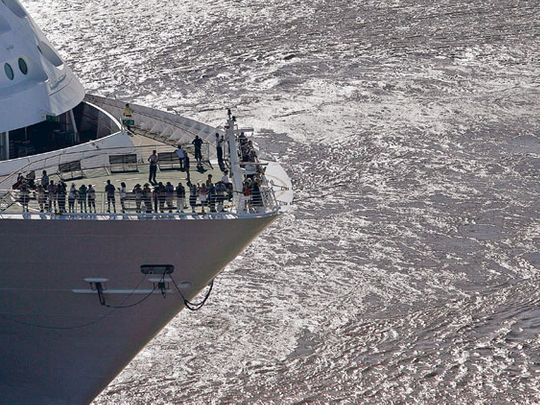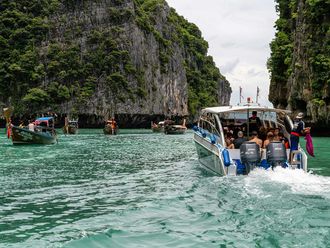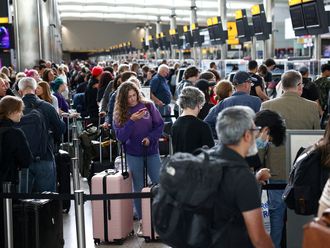
An instinctive revulsion is hard to suppress: a cruise ship of pampered passengers docks at a private beach in Labadee, Haiti, in the wake of the earthquake that killed more Haitians than the stricken survivors can find space to bury them in.
How could holidaymakers wish to sip cocktails or take jetski rides, knowing the devastation that persists inland? Some may have felt uncomfortable but not enough to dissuade Royal Caribbean International from keeping to their usual schedule.
The great divide
Yet this starkest of juxtapositions only highlights in its bleak extremity what is regarded as acceptable elsewhere. Tourism provides a microcosm of modern globalised inequality, with all the advantages or injustices it bestows on those on different sides of the divide. From the Caribbean to southern Asia, cheap labour and land allow holidaymakers to relax in style for less. The Haitian private beach, in this case reliant on more armed guards than most, is otherwise reminiscent of gated resorts around the world; locals may have access to the beaches in front of hotels but are often only notionally welcome, like jellyfish.
And cruise holidays and ships have distilled that essence still further. Nowhere should the economics be more vividly obvious, yet they remain magically suppressed. On these giant floating metaphors, the guests' enormous consumption is serviced by staff hired from the poorest countries on earth, brought on-board under the kind of contracts made feasible by a global labour market. In justifying their decision to press ahead, Royal Caribbean disclosed that 200 Haitians are among the employees on their ships.
Royal Caribbean's pledge to "not abandon Haiti now they need us most" might raise eyebrows in other destinations: such as Grenada, abandoned in the late 1990s for requesting a modest waste management levy, or conversely Alaska, which found it difficult to keep cruise ships away despite a referendum seeking to curb their effects on unspoilt waters. The worth of cruises to their ports of call has long been controversial. Certainly, the logic of the private beach does not suggest funds being channelled openly to local economies.
Too easy to lay blame
For all the ills of this specific industry, and the horror in Port-au-Prince, the chasm that lies between the short lives of poverty led in Haiti and those that occasionally touch its shores is not new or worsened by the Labadee daytrippers. Does it make sense to subject a shipload of holidaymakers to standards we are unwilling to apply to consumption and trade elsewhere?
Ironically, this is an occasion when the cruise ships may be doing some measurable good: ferrying relief supplies and making a donation to the relief appeal. The cruise passenger who defiantly said he was "planning on enjoying my zip line excursion" and day on the beach in Haiti may sound callous, but by no means wrong.
Few today recite the mantra that travel broadens the mind without a touch of scepticism — especially when applied to mass-market holidays in the developing world, where great care is taken to shield the customer from anything as depressing as local reality. We don't talk about dream holidays for nothing. That bubble has been briefly pierced.
"I can't imagine having to choke down a burger there now," a passenger wrote on an internet forum. We should applaud Royal Caribbean for sailing carefree into Haiti's hell. For once, that leap of imagination isn't needed.












